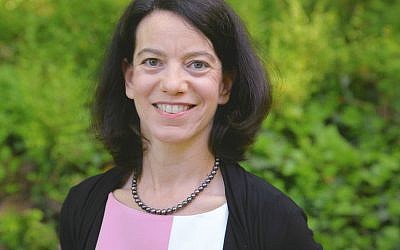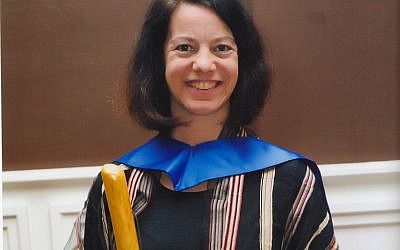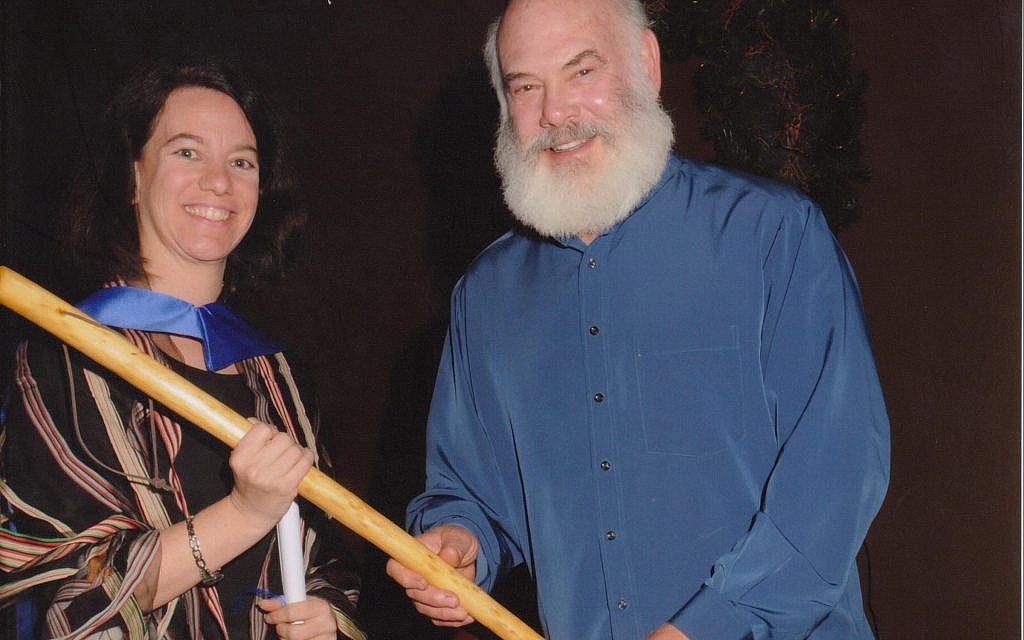Alternative Medicine Doctor Heals Mind and Body
Sandra K. Banks incorporates integrative medicine into her regular medical service.
Sandra K. Banks didn’t plan to be a doctor, let alone one with a specialty in internal and integrative medicine. She wanted to be a photographer.

But her father, a dermatologist, wanted her to go into medicine. Growing up in Chattanooga, she “hung out” with her pediatrician, to whom she went for allergy shots. And she followed nurses around while waiting to see if she had a reaction to the shots.
Once committed to medicine, she thought she’d be a pediatrician, but the kids “cried all the time.” Her father wanted her to be a dermatologist, “but that’s boring, only about cancer and acne.”
Get The AJT Newsletter by email and never miss our top stories Free Sign Up
Then she considered surgery, but decided it wasn’t for her. “Internal medicine is a little bit about everything, but not a lot about anything. It’s fun. It’s interesting. It’s fast paced. It requires a lot of mental juggling. And every patient is different.
“I was always interested in alternative medicine,” she continued. An older cousin whom she adored had a big influence on her. He was licensed in every kind of medicine, except as an MD.
“In 1988, I was in practice in North Carolina and I applied for the integrative medicine program at the University of Arizona, but they were only accepting new residents.” She left for Israel for 1 ½ years, writing for a women’s medical journal and interacting with in-patient, English-speaking doctors. “Then in 2001, I landed in Atlanta.”
She has been associated with Primary Care Physicians of Atlanta ever since. “I thought it would be a three-month gig, and now it’s 17 years later.”
Having adopted a young daughter, which kept her from traveling for her Continuing Medical Education (CME) credits, she attended a University of Arizona nutrition and health conference in Atlanta and learned that the Arizona Center for Integrative Medicine had an online program that would allow her to get her fellowship at home, with only two weeks a year in Arizona.
The program, started by Dr. Andrew Weil, defines integrative medicine (IM) as a “healing-oriented medicine that takes account of the whole person, including all aspects of lifestyle. It emphasizes the therapeutic relationship between practitioner and patient, is informed by evidence, and makes use of all appropriate therapies.”
According to the Center’s website, the program focuses on three areas: education, health promotion and research. “We believe the best way to change a field is to educate the most gifted professionals and place them in settings where they can teach others.”
Five years ago, Banks says she was the only IM board-certified doctor in Atlanta incorporating integrative medicine with the standard medicine she learned at the Medical College of Georgia School of Medicine, from which she graduated. “This differs from what I was taught. In those days, if you had a heart problem, you were taught just to go to a cardiologist. The brain and gut connection was a foreign language five years ago. What I do today is becoming mainstream. What I do now is not far out there; I just started it early.”

According to Banks, integrative medicine looked at the history of medicine and took the “best and the brightest.” Outside the United States, the medical field looks at the whole-body system and understands the connections, she says.
“Integrative Medicine approaches the patient where they are, and it starts with doing the non-aggressive thing first, like looking at what the patient eats and getting them to exercise. Americans are about quick fixes. We want a diet pill.”
Banks admits that her new approach requires much more time with a patient, which she provides for those patients willing to pay out-of-pocket for her thorough consultation. “It’s a lot about nutrition. I talk to the patient and ask what they eat, how much they exercise and what are they willing to change. We start with ‘don’t drink sodas or juices.’ Adults don’t need juice; it’s pure sugar. You lose the nutrition from the fruit when you juice it.”
She says that Atlanta, not unlike other American cities, has “food deserts.” These are “poor areas in which the only place to buy food is the 7-Eleven or Quik-Trip. There are no grocery stores. I give patients hand-outs which say, if you go to a farmer’s market, you can get a lot more for your $35. But then I have to tell them how to cook these things. People are trapped into bad habits.”
Banks says she works the integrative medicine into her regular medical service. Because she thinks outside the box, she gets referrals from acupuncturists and chiropractors. Of course, not all her colleagues are open to her approach. “I got into a verbal fight once with a new gastroenterologist,” she admits.
Apparently, her patients are much more supportive. She has received the patients’ choice award from Lyndhurst, N.J.-based Vitals, a healthcare database company, for the last two years.




comments